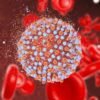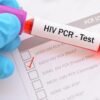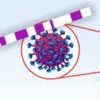An STD profile test, also known as a sexually transmitted disease (STD) panel or STI (sexually transmitted infection) screening, is a series of tests designed to detect common STIs like HIV, herpes, chlamydia, gonorrhea, syphilis, and hepatitis.
Here’s a more detailed explanation:
What it is:
Screening for STIs:
The primary purpose of an STD profile test is to screen for various STIs that are transmitted through sexual contact.
Blood and Urine Tests:
Some STIs, like HIV, hepatitis, and syphilis, are typically detected through blood tests, while others, like chlamydia and gonorrhea, may require urine or swab samples.
Common STIs Tested:
The test typically includes screening for:
HIV
Herpes Simplex Virus (HSV)
Chlamydia
Gonorrhea
Syphilis
Hepatitis B and C
Why it’s important:
Early detection: Early detection and treatment of STIs can help prevent serious health complications and the spread of infections.
Preventing further spread: Knowing your STI status allows you to take steps to prevent infecting others.
Maintaining sexual health: Regular STI screening is an important part of maintaining overall sexual health.
Who should get tested:
Individuals with symptoms: If you experience symptoms of an STI, such as sores, discharge, or pain, you should get tested.
Individuals with multiple partners: People who have multiple sexual partners are at higher risk of contracting STIs.
Individuals with a history of STIs: If you have a history of STIs, regular testing is recommended.
Pregnant women: Pregnant women should be screened for STIs, as some infections can be transmitted to the fetus.
Individuals who inject drugs: People who inject drugs and share needles are at high risk of contracting STIs, including HIV and hepatitis.
How to get tested:
Talk to your doctor: Discuss your risk factors and concerns with your doctor, who can recommend the appropriate tests.
Find a testing clinic: Many clinics and labs offer STD testing, and some clinics offer free or low-cost testing.
At-home tests: Some at-home STI tests are available, but it’s important to discuss your results with your doctor.










